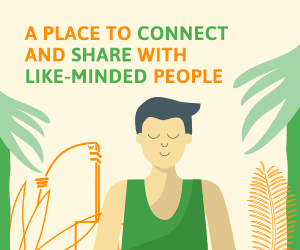Failure to self-validate can lead to problems such as impulsive behaviour and the inability to manage emotional responses. Psychologist Stanislava Puač Jovanović explores why many of us fail at self-validation and offers five ways to develop the skills to do it successfully.
Most of us are great at validating others. We acknowledge their emotions, recognize effort and success, and support individualism and self-expression. However, the majority of us are equally lousy at self-validation.
We all get angry, disappointed, sad, jealous, scared, demotivated. Ideally, one would accept and be able to regulate these emotions. Instead, many people immediately think: “I shouldn’t feel this way. I’m being ridiculous!” As a result, coping with different experiences becomes exceptionally challenging. Reactions seem to be out of control.
If you struggle with similar issues, you probably haven’t mastered the art of self-validation. The ability (or inability) to validate ourselves intertwines with much of what we go through in life. In this article, we'll give you five ways to develop self-validation so you can get to grips with this essential skill.
Why self-validation is essential
In simple terms, self-validation is accepting your own internal experience: your thoughts and feelings. Validation and self-validation are widely acknowledged problems in psychology, philosophy and sociology. The roots of the problem of self-validation lie in the vital human need to be recognized and supported.
• INTERESTED IN SELF-GROWTH? Sign-up for free courses in our happiness Academy •
According to Iser’s work in The Stanford Encyclopedia of Philosophy, recognition has critical psychological importance. Others’ feedback is essential for one’s practical identity to form. We could also touch upon Hegel’s concept of ‘struggle for recognition’. In its simplest, it points us towards understanding the source of our need to be validated. When we are misrecognized by others, our relationship with ourselves is hindered or even destroyed.

Self-validation is accepting your thoughts and feelings shutterstock/G-Stock Studio
Such strength of humans’ need to be validated by others led many thinkers to voice the significance of self-validation. Rare is a psychologist or a philosopher that would dispute the ultimate value of autonomy and authenticity. The independence that comes with the capacity to be one’s own judge could be expressed with a quote by Fromm:
“Obedience to my own reason or conviction (autonomous obedience) is not an act of submission but one of affirmation. My conviction and my judgment, if authentically mine, are part of me. If I follow them rather than the judgment of others, I am being myself.” - Erich Fromm, On Disobedience
Real-life outcomes of lacking self-validation skills
In slightly more practical terms, the inability to self-validate could lead to a range of adverse outcomes: Negating your thoughts and emotions could lead to a paradoxical effect in which you are even more affected by them, as research has demonstrated. When you deny and suppress your inner experiences, you lose control over them. You could think of it as an instruction to not think about a pink elephant. Your cognition still rests on the negated content.
You could face many adversities in your personal and professional life because a lack of self-validation can cause impulsive behaviour and emotional dysregulation. You could be more prone to risky behaviours, addictions, eating disorders, to name a few. Your interpersonal skills could also suffer, leading to a range of other problems in your career or relationships. Your love life and friendships could be chaotic, codependent and intensely challenging for everyone involved.
“You could face many adversities in your personal and professional life as a lack of self-validation can cause impulsive behaviour and emotional dysregulation.”
Finally, you might be vulnerable to depression, suicidal thoughts, anxiety, PTSD and other emotional disturbances. When you cannot validate yourself, you are driven to maladaptive coping. This, however, eventually leads you far away from well-being and mental health.
Why do we have a hard time to self-validate?
There is no definitive response to the question above. A few things could have happened.
Attachment style
If the inborn need to be safe, cared for, and recognized was unfulfilled, we might have become unable to self-validate. For example, you might have developed an anxious attachment style. How your parents interacted with you as a child serves as a blueprint for your adult relationships.
You might not have learned to be self-sufficient and recognize your worth. As children, we need adequate support from our caregivers to develop a sense of security about our emotions, decisions and actions. Research reveals that people with an anxious attachment style have a strong need for social approval. In other words, they need others to validate them.
Modelling
Another option was that your caregivers did not make it possible for you to mimic self-validation. When we are children, we acquire many traits and habits by modelling. If your primary attachment figure invalidated themselves, you probably learned to do the same. Research shows that emotional and behavioural self-validation and self-regulation are skills that are transferred from a parent to a child.
Adult trauma
You might have also started doubting yourself due to a traumatic experience at any point in your life. Both anecdotal reports and scientific studies confirm that being a victim of abuse, for example, could make you doubt your self-efficacy and self-worth.
Most importantly, your readiness to accept, experience and address your emotions could have been disturbed. When one is in an abusive relationship, they gradually lose their sovereignty. Self-validation becomes a distant memory.
Five ways to develop self-validation
Although the potential outcomes of a lack of self-validation sound rather bleak, you should not feel discouraged: it is a skill that can be developed. Even if your early experience geared you towards invalidating yourself, you now have the opportunity to change that. Here are five tips to develop self-validation.
1. Practise mindfulness
Mindfulness and self-validation go hand in hand. You cannot validate what you don’t recognize. You need to develop a non-judgmental awareness of your experiences, as they happen and when they happen, to validate them.
Being present is the first level of validation. This means acknowledging your inner experience without avoidance or distraction. Mindfulness will help you regain grasp over your emotions and build up strength to cope with them.
• FIND YOUR TRIBE! Join our curious and caring community and make new friends •
Evidence from fMRI studies supports this argument. Individuals who were grieving a loss of a loved one were taught mindfulness techniques for eight weeks. When they were tested afterwards, their scores revealed a significantly better ability to regulate emotions. They also had fewer symptoms of depression, anxiety and grief. fMRI suggested that the participants learned to gain cognitive control over their feelings. They were no longer overwhelmed by them.
2. Be brutally honest with yourself
Being imperfect stings, we know. Accepting imperfection is exceptionally difficult for most people. Especially so if they were taught that being great at something equals being worthy.
If your parents and social environment were too demanding, it might have resulted in unhealthy perfectionism. Such a form of perfectionism has adverse effects on mental health, as confirmed in empirical research. If your sense of self-worth is equated to being flawless, you might have a tough time even noticing (let alone accepting) your blemishes. Nonetheless, when you want to learn the art of self-validation, you need to be brutally frank with yourself.
Notice the emotions and thoughts you don’t feel proud of. Admit to yourself your shortcomings. Own up to your genuine reactions and experiences. Yes, there will be many unpleasant facts. It’s alright – no one is watching.

It's possible to develop self-validation skills shutterstock/Prostock-studio
3. Develop your emotional intelligence
Although there are a few relevant emotional intelligence (EI) models, Goleman’s work is among the most popular ones. He proposes that EI consists of five constructs: self-awareness, self-regulation, social skill (being able to get along with others), empathy and motivation. You can notice how EI is necessary for your ability to self-validate.
With EI comes the ability to reflect on your experiences and emotions. Luckily, EI is a skill that can be learned. Therefore, to master self-validation, start developing your EI.
When you can accurately name what you are feeling, you can then start to acknowledge and accept your emotional response. As a result, you will build healthy relationships with others without needing their recognition to feel good or motivated. You will build emotional autonomy.
4. Connect with your body’s responses
Some people have grown so detached from their inner world that they need to tap into their bodily reactions first. In this regard, some elements of body-centred psychotherapies could be used. According to this group of approaches to psychotherapy, the body is not just something we have. We are our bodies.
“Mindfulness and self-validation go hand in hand. You cannot validate what you don’t recognize. You need to develop a non-judgmental awareness of your experiences, as they happen and when they happen.”
This means we live as a whole, as an inseparable totality of body and mind. When we learn to validate who we are and what we experience, we should include our body’s responses into the equation. Where are your emotions? What does your body do when you feel in a certain way? How does it respond to people and events? What is it trying to tell you about yourself?
You could try a body awareness meditation to help you get started. A combination of body awareness with mindfulness and accurate, honest reflection we suggested above will help you develop a sense of being rooted inside of your own experience.
5. Self-validate by acknowledging your past experiences
The final piece of advice in developing self-validation skills is to learn to validate yourself by acknowledging your past experiences. They fused within yourself and made you into who you are now. You now need to practice recognizing both positive and adverse experiences – and their consequences.
RELATED: How to Stop Beating Yourself Up: 7 Techniques That Work
How will this help you practise self-validation? Let us say that you had an intense reaction to your partner’s criticism of something you did. Try not to think: “You acted like a cuckoo there!” You could self-validate this reaction by saying: “It’s understandable that you felt this way. Your mother/father would punish you harshly for failures, and you are still overly sensitive to criticism”.

Use meditation to connect with body's responses shutterstock/Anatoliy Karlyuk
Such a validation does not mean that you condone erratic behaviour. It means that you allow yourself to feel whatever it is that you are feeling. You also name the emotion and understand its cause. These are the first steps to get into a self-validating mindset. Additionally, these are the first steps towards growing as a person.
These five steps build up towards self-validation development as taught in dialectical behaviour therapy (DBT). According to DBT, there are three steps to validate yourself and your emotions – acknowledge, accept and understand. This worksheet could help you practice self-validation in everyday situations, as well as with more intense or past emotions.
Self-validate to autonomy
Self-validation is freedom. Freedom to experience life as it is (yes, the ugliness, too). It gives you self-determination in picking your path. You get to do it independently of others’ influence, be it conscious or subconscious.
When you learn to rely on yourself for validation, you gain the liberty to be genuine and own your experiences. Therefore, in the spirit of autonomy that we are propagating here, we invite you – acknowledge yourself and allow your authentic Self to exist! •
Main image: shutterstock/Victoria Chadinova
happiness.com | The fine art of being: learn, practise, share
Are you a happiness.com member? Sign up for free to:
■ enjoy our happiness magazine with practical life tips
■ share and supporting others in our happiness forum
■ develop with free online classes in our Academy
Written by Stanislava Puač Jovanović
 Stanislava Puač Jovanović has a master’s degree in psychology and works as a freelance writer and researcher in this area. Her primary focus is on questions relating to mental health, stress-management, self-development and well-being.
Stanislava Puač Jovanović has a master’s degree in psychology and works as a freelance writer and researcher in this area. Her primary focus is on questions relating to mental health, stress-management, self-development and well-being.

Join the conversation
You are posting as a guest. If you have an account, sign in now to post with your account.